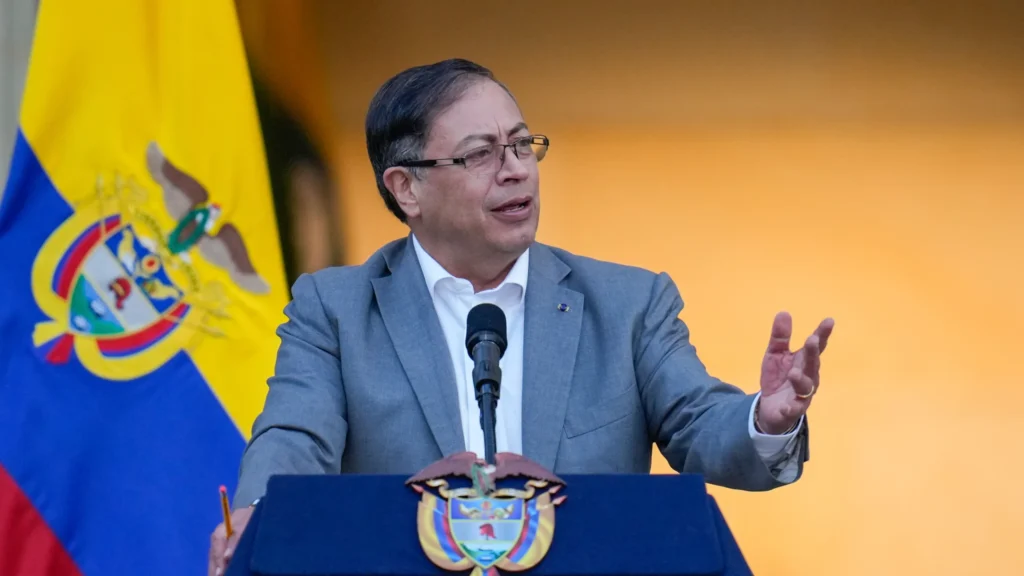The United States has announced sanctions against Colombia’s President Gustavo Petro, accusing him of failing to rein in rampant drug trafficking and allowing powerful cartels to “flourish.” The move marks a new low in relations between Washington and Bogotá, which were once strong allies in the global war on drugs.
The sanctions, revealed by the U.S. Department of State, come amid a growing diplomatic dispute between President Petro Colombia’s first left-wing leader and U.S. President Donald Trump. The two leaders have publicly clashed in recent weeks over U.S. military strikes on vessels allegedly used for drug smuggling. The strikes, which killed dozens of people, including Colombian nationals, have drawn sharp criticism from Petro, who accused Trump of “murder.”
Trump defended the attacks, insisting that they targeted “criminal networks” responsible for flooding American streets with narcotics. He accused Petro’s government of “turning a blind eye” to trafficking operations and failing to uphold prior anti-narcotics agreements.
“Colombia has long been a key partner in our fight against drugs, but under Petro’s leadership, the cartels have regained power,” said a senior U.S. official. “These sanctions are a response to his unwillingness to act.”
President Petro has condemned the sanctions as “politically motivated,” calling them an attempt to “punish Colombia for pursuing an independent foreign policy.” He further accused Washington of undermining Colombia’s sovereignty and exploiting the war on drugs for its own interests.
The move could have significant economic and political implications for Colombia, which has historically relied on U.S. military and development aid. Observers warn that the escalating tensions could jeopardize ongoing cooperation on security, migration, and regional stability.
As diplomatic relations continue to deteriorate, analysts suggest both nations may be entering a new era of strained ties — one that could reshape Latin America’s balance of power.

